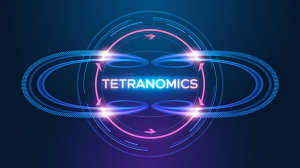Tetranomics: The Fourfold Structure of Reality, Intelligence, and Recursive Synthesis
About this ebook
Drawing inspiration from the Pythagorean Tetraktys, an ancient geometric symbol signifying cosmic harmony, Tetranomics examines how recursive intelligence and systemic order manifest through quaternary structures across disciplines. The book explores how the principle of nomos, originally denoting law and systemic order in Greek philosophy, extends beyond human constructs to define the fundamental organizational patterns governing the cosmos.
Through an interdisciplinary synthesis of mathematics, physics, cognition, and complexity theory, Tetranomics provides a transformative perspective on how intelligence structures itself recursively. It reveals how quaternary principles inform everything from biological evolution to artificial intelligence, offering new insights into the structured and lawful nature of intelligence across multiple dimensions.
Whether you are a philosopher, scientist, engineer, or systems theorist, Tetranomics challenges conventional paradigms and introduces a powerful new model for understanding the deep, recursive architecture of reality.
About the author
Ronald Legarski is a visionary thinker, writer, researcher, and co-founder of Adaptive Energy Systems, where he pioneers cutting-edge advancements in modular energy infrastructure, recursive intelligence, and interdisciplinary standardization. As the President & CEO of SolveForce, he has leveraged his expertise to bridge interdisciplinary fields, developing innovative frameworks that unify communication, cognition, and technology. With a background in electrical systems, linguistic analysis, and recursive intelligence, Legarski’s work delves into the foundational principles governing reality and knowledge synthesis.
His writing spans a vast intellectual landscape, from language categorization and epistemology to advanced energy systems and modular design. In Tetranomics: The Fourfold Structure of Reality, Intelligence, and Recursive Synthesis, he introduces a groundbreaking framework that uncovers the universal fourfold patterns underlying cognition, physics, and complex adaptive systems. Legarski’s interdisciplinary approach integrates ancient wisdom with modern computational structures, offering a cohesive model for understanding the recursive nature of intelligence, structure, and order.
Through his work, he continues to refine and expand the boundaries of knowledge, seeking to unify seemingly disparate disciplines under a coherent and systematic paradigm.








